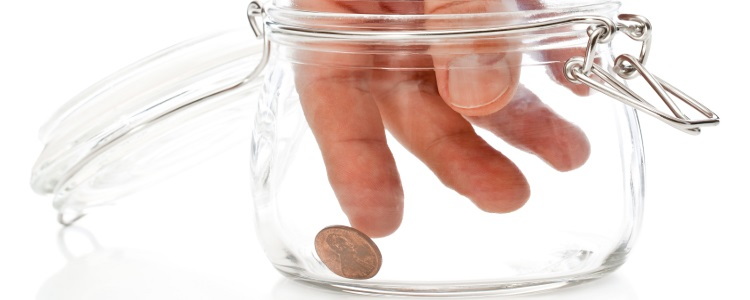Down payments are often required, and highly encouraged, when you’re financing a vehicle. Borrowers with poor credit are almost always asked to bring a down payment. But why? Turns out, there are many good reasons why you should save for your next car loan.
Down Payments on Auto Loans
 Many lenders require 10% of the vehicle's selling price or $1,000 down to qualify for an auto loan with bad credit. Borrowers with good credit may not be required to put cash down, but if your credit is worse for wear, it’s best to be prepared.
Many lenders require 10% of the vehicle's selling price or $1,000 down to qualify for an auto loan with bad credit. Borrowers with good credit may not be required to put cash down, but if your credit is worse for wear, it’s best to be prepared.
Down payments don’t exist because the lender just wants your money. They serve a few different purposes, and they’re beneficial for both you and the lender.
Down payments serve as a way to show the lender that you’re:
- Financially sound
- Not borrowing above your means
- Willing to put “skin in the game”
Down payments are also a way for the lender to be sure that they can recover some money if you default on the loan. They show the lender you’re able and willing to take on a car loan, and this increases your odds of qualifying for auto financing.
Besides all that, down payments arguably offer more benefits for you than the lender.
Benefits of Car Loan Down Payments
Need the motivation to save cash for your next vehicle? Down payments save you money – simple as that.
When you finance a car, lenders charge interest. Auto loans generally use the simple interest formula, meaning you’re charged interest on the principal – your loan’s remaining balance. The less you finance, the less there is to be charged interest on.
You also get a lower monthly loan payment. Here’s a quick example:
- No down payment: Say you’re looking to buy a vehicle for $15,000, financing for 60 months, and you’re assigned a 13% interest rate (the average rate for borrowers according to dealers we surveyed in our nationwide network of special finance dealerships). Without a down payment, you’re looking at a car payment around $341.
- With a 15% down payment: Now imagine you're buying the same vehicle for $15,000 with a 60-month loan term and a 13% interest rate, but this time you have a 15% down payment. That comes out to $2,250. The monthly payment in this scenario would be around $290.
Besides saving you money in the long run and giving you more disposable income, down payments lower your chances of getting stuck in a negative equity position, also called being underwater on your auto loan.
Equity is useful when you need to sell the car or trade it in because equity is what’s put toward your next vehicle purchase. Sometimes, borrowers end up owing more on their car than what it's worth, which puts them in negative equity. It can happen when the borrower can’t pay on the vehicle fast enough to keep up with its loss of value (depreciation).
By putting money down on the loan, you’re lowering the amount you need to finance, and you’re more likely to stay out of negative equity.
How Much Money Should I Put Down?
As vehicle prices continue to rise, it’s more important than ever to have a down payment to start your auto loan on a good note.
There’s an old rule of thumb that says you should put 20% down on any car loan, but that’s falling out of practice in recent years due to the rising prices of vehicles. According to Experian, the average brand-new car value is just over $35,000 in the third quarter of 2020, so a 20% down payment would be around $7,000 – that’s a big chunk of change.
Remember, bad credit lenders are usually only lookin for $1,000 or 10% of the car's selling price, sometimes whichever is less. Of course, you can also put down more than the minimum amount required. In fact, it’s recommended that you put down as much as you can reasonably afford, without breaking the bank or completely draining your savings, if you have bad credit.
You don’t have to use cash to meet a down payment requirement, though! You can also use a trade-in. Trade-ins are a very common way to meet down payment requirements, lower the selling price of your next vehicle, and send off your old ride without the hassle of selling it yourself.
Bad Credit Auto Loans
Having a down payment is one thing, finding an auto lender that can approve you for financing with poor credit is another beast. Not every traditional lender can assist borrowers with complicated credit. Dealerships that have bad credit connections are called special finance dealers.
Not sure how you can tell the difference? Don’t worry, we’ve already created a better way to find dealerships that are able to work with poor credit at Auto Credit Express. Over the last 20 years, we’ve produced a nationwide network of special finance dealers, and we want to match you to one in your local area. Get started by filling out our free car loan request form.
















